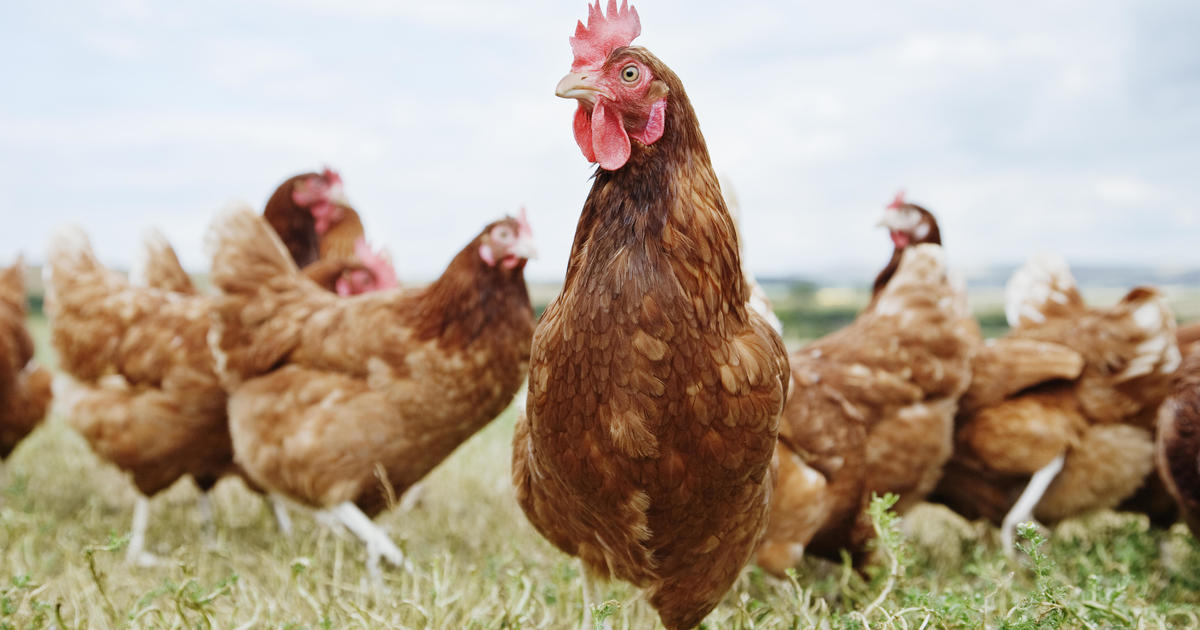Animals Kept Out, Power Kept On With Enhanced Control Measures At Consumers Energy Substations
JACKSON (WWJ) -- Squirrels, raccoons and other curious animals will have a more difficult time getting into Consumers Energy's substations and disrupting power because of control measures being put in place throughout the state.
The utility has been installing animal control equipment for years, but now has more stringent standards in place to take a more proactive approach to work at new and existing substations.
"Our Promise to Michigan is to deliver the energy you need, whenever you need it," said Garrick Rochow, Consumers Energy's vice president of energy delivery. "These new standards are helping keep the animals out and the lights on."
Consumers Energy owns and operates more than 1,200 substations, fenced facilities where electric voltage is decreased for distribution to homes and businesses across Michigan's Lower Peninsula. The electrical wires leading to and from a substation, along with the warmth and vibration given off by the substation's equipment are often attractive to wildlife, especially squirrels and raccoons, company statistics show. During 2011 and 2012, 63 percent of the wildlife-related substation outages were caused by squirrels, 21 percent by raccoons and 16 percent by birds.
Substations are knocked out of service when an animal enters the substation and contacts energized equipment while also touching the ground or grounded electrical equipment. The animal is electrocuted and a resulting electrical "fault" disrupts power either momentarily or for longer periods, depending on the situation.
From January 2011 through Sept. 30 of this year, more than 30 percent of all substation outages were caused by wildlife, one of the largest known causes of substation outages. When partial or complete substation outages occur, hundreds or thousands of customers can lose power. A typical substation outage caused by an animal can last from two to three hours.
The company's standard addresses two main areas: Improving the barriers around the substation and reducing the opportunity for animals to contact energized equipment in the substations. Measures include:
* Creating no more than 1 inch wide openings around the perimeter, such as replacing 2 inch wide mesh fencing with 1-inch mesh;
* Placing at least 3 inches of gravel covering the bottom of the fence perimeter. At substations with a history of problems with burrowing animals such as raccoons, up to 2 feet of extra fence is buried below ground;
* Three feet of clear polycarbonate panels are attached to the fencing to keep animals from climbing over and into the substation;
Placing clear polycarbonate discs on electric lines leading into and out of the substations to prevent access;
* Aluminum bands wrapped around wooden utility poles near the substation to deter animal climbing;
* Creation of a minimum 10-foot area between perimeter fencing and any trees or brush;
* Caps to cover energized equipment such as conductors and other parts.
The improved animal control measures took effect in late 2012. Because work to design, engineer and construct substations often span several years, it's too early to determine the affect the policy changes are making. Ten to 15 new substations are built each year, with another 10 to 20 upgraded or modified. The new animal control standards have been applied to several existing substations during 2013.
"These standards provide consistent and proactive measures to keep animals out of our substations," Rochow said. "This is all about improving electric reliability."
Consumers Energy spends about $150 million a year to upgrade its electric distribution system, including substation work. These investments and others over the last five years have resulted in a 20 percent improvement in electric reliability, Rochow said.
Consumers Energy, Michigan's largest utility, is the principal subsidiary of CMS Energy (NYSE: CMS), providing natural gas and electricity to 6.6 million of the state's 10 million residents in all 68 Lower Peninsula counties.
For more information regarding Consumers Energy, go to: www.ConsumersEnergy.com or join us on Facebook at www.facebook.com/consumersenergymichigan



